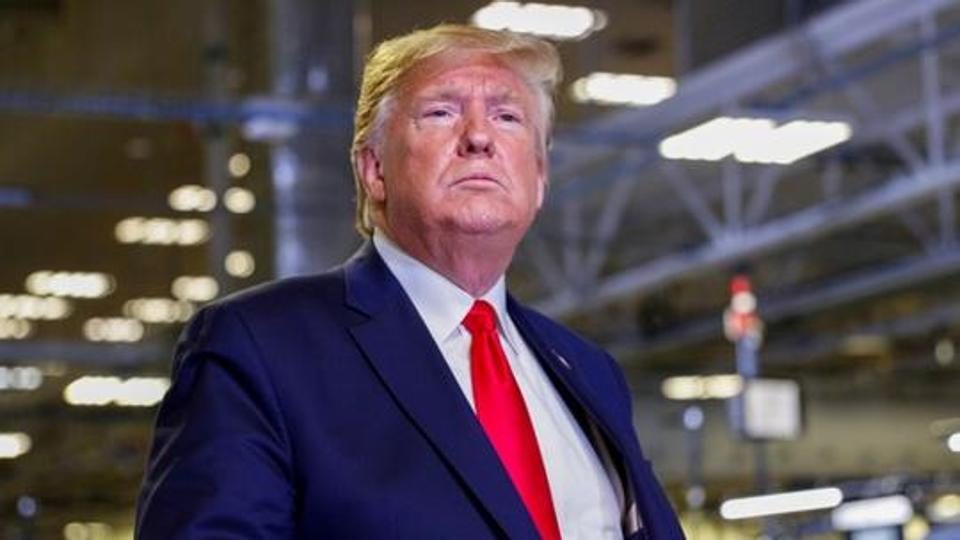FBI surveillance of a former campaign adviser to then-presidential candidate Donald Trump in 2016 was marred by bureaucratic mistakes but wasn’t illegal or driven by bias within the bureau’s leadership, according to people familiar with the findings of an internal investigation.
Federal Bureau of Investigation officials made some sloppy, but relatively minor errors when it came to seeking court approval for a surveillance warrant against former Trump adviser Carter Page. The issues cited included one lower-level lawyer who altered an email related to the warrant application, according to the people, who asked not to be identified because the findings haven’t been made public.
The wiretap on Page was part of a broader effort the FBI undertook in response to Russia’s interference in the 2016 election and whether Trump or any of his associates were conspiring with Russia. Overall, the FBI’s operation and surveillance on Page were legally sound and justified and not the product of political bias against Trump from FBI leaders like then-Director James Comey and Deputy Director Andrew McCabe, the people said.
The findings, made in a draft report from Inspector General Michael Horowitz, undercut a number of claims made by the president and top allies about alleged “spying” on his campaign and the origins of the investigation that eventually became part of Special Counsel Robert Mueller’s investigation.
Draft Findings
The findings were first reported Friday by the New York Times. Some of the report’s conclusions have been confirmed by Bloomberg, which hasn’t seen the draft.
Horowitz has told lawmakers he plans to release the report on Dec. 9. Some of the findings could change by then.
In addition to clarifying whether officials from the FBI or other agencies acted improperly — as Trump and his supporters have long contended — the report is expected to address whether any current or former officials should be criminally prosecuted for their actions.
Regardless of the report’s conclusion, it will arrive as the president and his political allies are engaged in a ferocious political battle against House Democrats over an impeachment inquiry in the House of Representatives.
Both Republicans and Democrats are likely to seize on aspects of the report they think will bolster their cases.
Ukraine Investigation
Controversy over the origins of the Russia investigation is partly at the core of the impeachment proceedings. House Democrats began their inquiry following allegations that Trump tried to pressure the president of Ukraine to investigate an unsubstantiated theory that a previous government meddled in the 2016 U.S. election, as well as announce a probe into one of the president’s chief Democratic rivals, former Vice President Joe Biden.
The FBI, the inspector general’s office and the Justice Department all declined to comment.
Horowitz’s report did find that a low-level lawyer, Kevin Clinesmith, altered an email that was used in a package of material to seek court approval to renew the wiretap against Page, according to the New York Times. Clinesmith’s lawyer declined to comment to the Times.
Page had previously been flagged by intelligence agencies as a target of Russian interest. The warrant was obtained in October 2016, after Page left the campaign. The surveillance continued into 2017, after Trump took office.
The New York Times also reported that the draft doesn’t corroborate conspiracy theories and insinuations offered by Trump and his allies about the early stages of the Russia investigation. For example, none of the evidence used to open the investigation came from the CIA or from a salacious but unverified dossier compiled by Christopher Steele, a former British intelligence officer, according to the Times.
Republicans have argued that the surveillance applications relied heavily on the so-called Steele dossier.
Separately, Attorney General William Barr is conducting his own investigation into what he’s called “spying” on Trump’s campaign. That investigation, led by U.S. Attorney John Durham, isn’t expected to be completed soon.
Horowitz said in a June letter to congressional leaders that his office “received and reviewed over one million records” and has “conducted over 100 interviews, including current and former DOJ and FBI personnel.”
The Justice Department released a redacted version of the Page surveillance applications last year.
Referring to Trump as “Candidate #1,” the initial application said “the FBI believes that the Russian Government’s efforts are being coordinated with Page and perhaps other individuals associated with Candidate #1’s campaign.”


